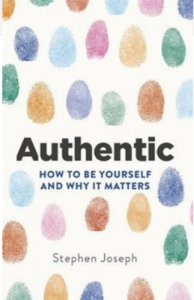The following has been written for the those who; do not like to disappoint, like to help, will put themselves out for the benefit of another and who have trouble saying ‘No’. The people pleasers, the helpers and the compliant. Please read on.
First, a story that began my contemplation of the concept of ‘costly cheap talk’.
A few years ago, I took up a position which had me working after-hours and travelling considerable distances. The purpose of the position was to fill a gap in the income as I transitioned from full-time teaching, to casual teaching and sole trader. I called it the bread-and-cheese-money-job.
In time, the bread-and-cheese-money-job became an inconvenience, and I informed my boss that I would not be continuing in the following year. He asked me to reconsider; I was a valuable member of the team; I was popular with the clients; ‘Have another think and let me know.’ I remember feeling frustrated as I heard myself respond with, ‘Okay, I will’.
In the days that followed I wrestled back and forth, wondering what I should do. What added to my frustrations was the fact that I previously made up mind and was now reconsidering. Fortunately, I have a wise urban-bestie and over our regular TGI Brownies I told him of my dilemma. My urban-bestie proceeded to recite what my boss had said; ‘How did you know that?’ I asked. He explained, ‘He appealed to your desire to please. He appealed to your desire to do well at your job. He appealed to your desire to be valued and needed’.
Sonofabitch!
He concluded by explaining that talk is cheap. It was cheaper for my boss to praise me up than it was for him to train another person. His desire was for me to make his business work.
With my desire-to-please secured in my pocket, I had rehearsed, and I was ready. I made the call and told my boss that I’d thought about it and my decision was the same. ‘Ok, thanks for letting me know.’ It was almost anti-climactic.
Cheap for some and costly for others
Talk is Cheap for the one doing the talking but it can be costly for the one being talked to. There have been many times when I have been asked to do a task or take on a project, I’d say yes because that’s what I’d do, and then wrestled with the how-to-do and how-will-I and the anxiety and nerves and…and…and. The actual request generally cost nothing to the one doing the asking and came at a cost to me. Thus, it was Costly Cheap Talk. Cheap for them and Costly for me.
As indicated at the beginning of this article, there are some who fall prey to Costly Cheap Talk more than others:
- the nice,
- the reliable,
- those willing to be helpful,
- the people pleasers,
- the compliant,
- those who are too trusting of others,
- those who want to be liked,
- those who do not want to disappoint,
- those who lack confidence,
- those who do not trust themselves.
Of course, this list could go on, but I hope you noticed how it takes a bit of a turn part way through. What makes Cheap Talk Costly, is the lack of connection to ourselves. It causes us to doubt. For some, there came a time when you began to believe that another person’s words were of greater value than your own.
Seeking opinions of others is fine, but it is a problem when it results in silencing our own voice. The combination of low self-confidence mixed with a desire to please (or not disappoint) can result in making decisions that are harmful for our own wellbeing.
Verbal Abuse
The topic of Verbal Abuse is beyond the scope of this article, but it requires acknowledgment as being a form of Cheap Talk that has a high price tag. For the sufferer who receives verbal abuse, especially over a long period of time, the cost can include confidence, esteem, value of self, knowing and accepting of self, the ability to make decisions, the ability to consider themselves as being anything more than an inconvenience to another. To overcome the debilitating impact of long-term verbal abuse, one requires much self-care and most likely, professional help.
We need our champions
I do need to acknowledge that I have had a lot of encouragement from family and friends in relation to my career and personal development, and I thank them. These were the times when the other could see in me something that I was unable to see in myself. We all need our champions.

The subject of this article is not about the ‘You can do it!’ cheer, but the ‘Could you do it, or Will you do it’ and ‘you should do it’. These pieces of advice or requests cause a problem when they are contrary to our values; values such as equality, justice, relationships, wellbeing, connection, community, trust. The list of potential values is long, and we all have a few core values. When people suggest to me that they do not know what their values are, I draw their attention to what upsets them – this is usually a good indication of what is important to them.
Be kind to your past self
The temptation is to be cross with our past selves who may have followed the ill-advice of another. However, armed with curiosity and compassion, we can consider the context of our past selves and the person we were then, and it may start to make sense.
By understanding the context that we found ourselves in, we can nurture compassion for our past selves. By ‘context’, I am referring to our age, where we were, our family of origin, the social climate, personal levels of confidence or self-esteem; there is quite a bit to the concept of ‘context’. It also provides more to the story than the behaviour alone. Triggers of shame usually hover around behaviour with little regard to the context: What can you tell me about that person back then? Can you see them? Can you describe them? What do they most need to hear? Can you be kind to them and regard them with compassion? From this new perspective of context and compassion, shameful memories can be turned into moments of understanding and healing.

It can also equip us with forgiveness for the person who advised us at the time. For the kids at school who egged us on with ‘do-it, do-it, do-it, do-it’ or ‘I dare you’, to the one who genuinely thought they were giving us the right advice at the time. It is time to set them free too.
Moving Forward
In his book Authenticity, Professor Stephen Joseph (2016), combines the importance of Knowing yourself (and accepting yourself), Owning yourself (taking responsibility for your own choices), and Being yourself (behaving in a manner that is consistent with your values). He suggests that it is only when we are operating out of all three that we can experience authenticity. This serves to highlight what the real cost is when we go with another person’s idea for us, especially when that idea is far from who we are, or what we really want.

My encouragement is to not be afraid of yourself or the sound of your own voice. There will be times when your voice opposes the suggestions of another; it takes courage. Joseph, along with many other authors, suggests that being true to yourself, having authenticity, and finding your voice, takes courage and may not always be well received; but it is worth it.
Being true to your own voice is something that you may need to learn and your future self will be grateful for it.
About Gwen
Gwen is a school teacher, counsellor, author and presenter. Gwen’s counselling practice caters particularly for children, adolescents, teachers and parents, as well as generalised counselling. She works with individuals in relation to mental health and wellbeing. Gwen is the author of Bully Resilience: Changing the Game. See www.equipcc.com.au for more information.


Recent Comments